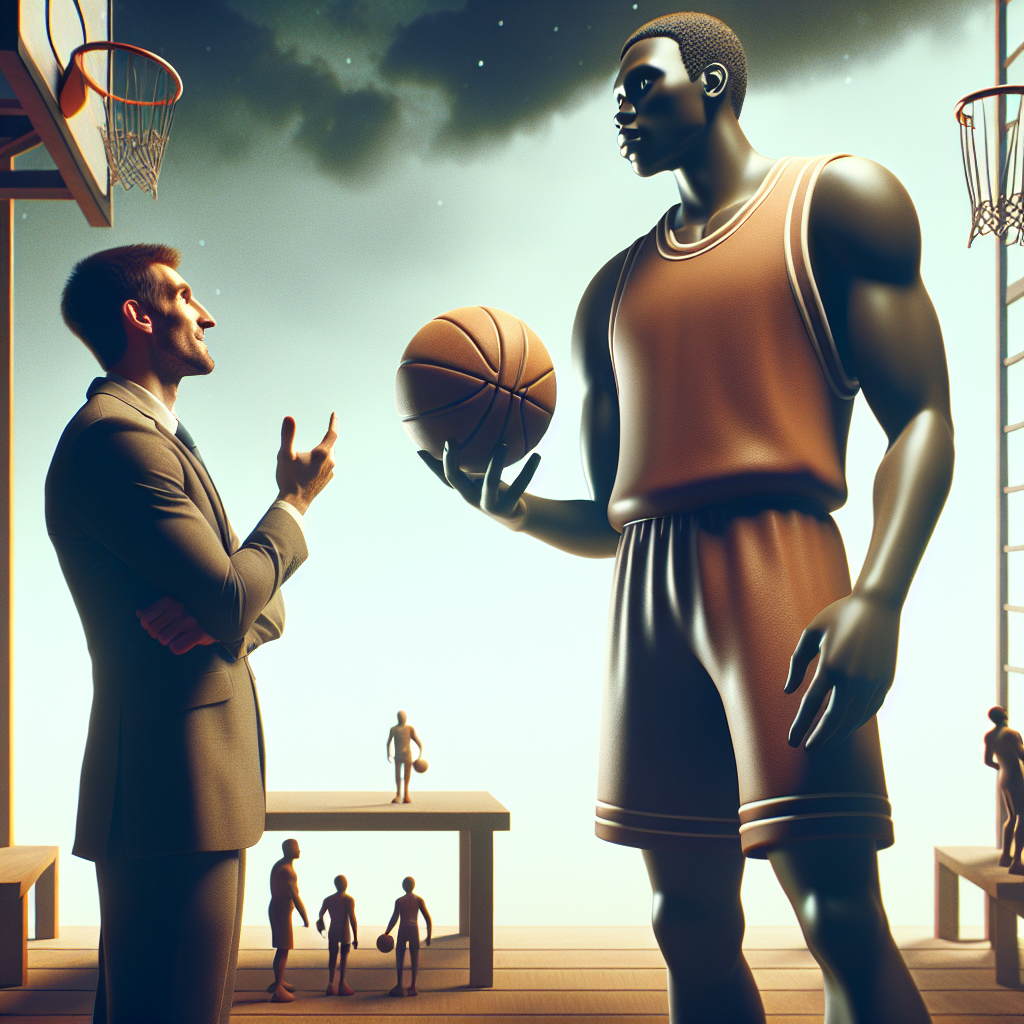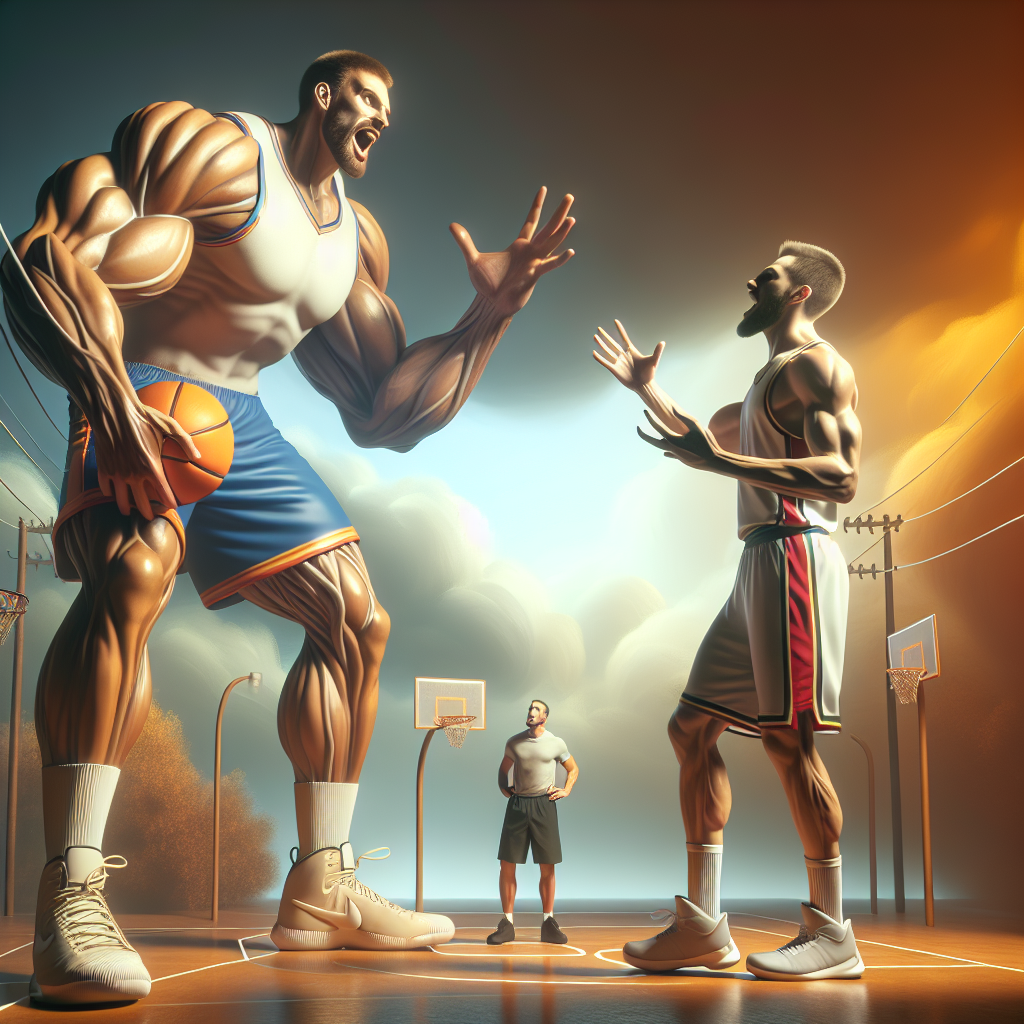Shaquille O’Neal: Is it time to put Steph Curry in GOAT conversation?

Shaquille O’Neal’s Impact on Modern Basketball
Shaquille O’Neal’s impact on modern basketball is both profound and multifaceted, shaping the game in ways that extend far beyond his towering presence on the court. As one of the most dominant centers in NBA history, O’Neal’s influence is evident in the evolution of player roles, the strategic approaches of teams, and the overall culture of the sport. His career, marked by four NBA championships, three Finals MVP awards, and numerous All-Star appearances, serves as a testament to his extraordinary talent and enduring legacy.
O’Neal’s physicality and skill set redefined the center position, making it imperative for teams to adapt their strategies to counter his dominance. Standing at 7 feet 1 inch and weighing over 300 pounds, Shaq was an unstoppable force in the paint, combining sheer strength with surprising agility. His ability to score at will, rebound effectively, and protect the rim forced opposing teams to rethink their defensive schemes. This often led to the implementation of the “Hack-a-Shaq” strategy, where teams would intentionally foul O’Neal to exploit his poor free-throw shooting. While this tactic highlighted a weakness in his game, it also underscored the lengths to which teams would go to mitigate his impact.
Moreover, O’Neal’s presence on the court necessitated a shift in how teams constructed their rosters. The need for a formidable center to counteract Shaq’s dominance led to an increased emphasis on acquiring big men who could hold their own in the post. This trend influenced the drafting and development of players, as teams sought to find the next great center who could compete with O’Neal’s physicality and skill. However, as the game evolved, the emphasis on traditional centers began to wane, giving way to a more versatile and perimeter-oriented style of play. This shift can be partially attributed to the challenges teams faced in finding players who could match O’Neal’s unique combination of size and talent.
In addition to his on-court impact, Shaquille O’Neal’s larger-than-life personality and charisma helped elevate the NBA’s global profile. His engaging demeanor, coupled with his numerous endorsements and media appearances, made him a household name and a beloved figure among fans. O’Neal’s ability to connect with audiences transcended the sport, contributing to the NBA’s growth in popularity during the late 1990s and early 2000s. His influence extended beyond basketball, as he ventured into acting, music, and business, further solidifying his status as a cultural icon.
As the game continues to evolve, the question arises: is it time to put Steph Curry in the GOAT conversation? While O’Neal’s impact on the game is undeniable, Curry’s revolutionary approach to basketball has also left an indelible mark. Curry’s unparalleled shooting ability and his role in popularizing the three-point shot have transformed the way the game is played, much like O’Neal’s dominance in the paint did during his era. Both players have redefined their respective positions and have had a lasting influence on the sport.
In conclusion, Shaquille O’Neal’s impact on modern basketball is a testament to his extraordinary talent and larger-than-life presence. His dominance on the court, coupled with his charismatic personality, has left an enduring legacy that continues to shape the game. As we consider the evolving landscape of basketball, it is worth acknowledging the contributions of players like Steph Curry, whose revolutionary approach to the game invites comparisons to the greats who came before him.
The Evolution of Shaquille O’Neal’s Career: From Player to Business Mogul

Shaquille O’Neal, often referred to simply as Shaq, has had a career that is nothing short of extraordinary. From his early days as a dominant force on the basketball court to his current status as a successful business mogul, O’Neal’s journey is a testament to his versatility and relentless drive. His evolution from a professional athlete to a multifaceted entrepreneur offers a compelling narrative that underscores the importance of adaptability and vision.
O’Neal’s basketball career began in earnest when he was drafted by the Orlando Magic as the first overall pick in the 1992 NBA Draft. His impact was immediate; he was named the NBA Rookie of the Year and quickly established himself as one of the league’s most formidable centers. Over the course of his 19-year career, O’Neal played for six teams, including the Los Angeles Lakers and the Miami Heat, where he won a total of four NBA championships. His accolades are numerous: 15 All-Star selections, three Finals MVP awards, and an MVP award in 2000, to name a few. These achievements solidified his legacy as one of the greatest players in NBA history.
However, O’Neal’s ambitions extended far beyond the basketball court. Even during his playing days, he demonstrated a keen interest in business and entertainment. He dabbled in acting, appearing in films like “Kazaam” and “Blue Chips,” and released several rap albums. These ventures, while not always critically acclaimed, showcased his willingness to explore different avenues and take risks.
Upon retiring from professional basketball in 2011, O’Neal seamlessly transitioned into the business world. He earned an MBA from the University of Phoenix and later pursued a doctoral degree in education from Barry University. These academic achievements were not merely for show; they equipped him with the knowledge and skills necessary to navigate the complex world of business.
O’Neal’s business portfolio is as diverse as it is impressive. He has invested in various sectors, including technology, real estate, and consumer goods. Notably, he was an early investor in Google and has held significant stakes in companies like Ring and Papa John’s. His involvement with Papa John’s, in particular, has been transformative; he joined the company’s board of directors and became a brand ambassador, helping to revitalize its image and expand its market reach.
In addition to his business ventures, O’Neal has maintained a strong presence in the media. He serves as an analyst on TNT’s “Inside the NBA,” where his charismatic personality and insightful commentary have made him a fan favorite. This role allows him to stay connected to the sport he loves while also expanding his influence in the entertainment industry.
O’Neal’s journey from a dominant basketball player to a successful business mogul is a remarkable example of how one can leverage their talents and platform to achieve success in multiple arenas. His story is not just about athletic prowess but also about strategic thinking, continuous learning, and the courage to venture into new territories. As he continues to build his empire, O’Neal remains an inspiring figure, demonstrating that with determination and vision, the possibilities are limitless.
Is It Time to Put Steph Curry in the GOAT Conversation?
The debate over who holds the title of the greatest basketball player of all time (GOAT) has long been dominated by names like Michael Jordan, LeBron James, and Kareem Abdul-Jabbar. However, recent discussions have seen a new contender emerge: Stephen Curry. Shaquille O’Neal, a legend in his own right, has recently suggested that it might be time to include Curry in the GOAT conversation. This proposition raises several compelling points that merit consideration.
Firstly, Stephen Curry’s impact on the game of basketball is undeniable. His revolutionary style of play, characterized by an unprecedented proficiency in three-point shooting, has fundamentally altered the way the game is played. Teams across the NBA have adapted their strategies to emulate the “Curry effect,” prioritizing perimeter shooting and spacing. This shift has not only changed the dynamics of professional basketball but has also trickled down to college and high school levels, influencing the next generation of players.
Moreover, Curry’s individual accolades bolster his case for inclusion in the GOAT conversation. He is a two-time NBA MVP, with one of those being a unanimous selection—a feat no other player has achieved. Additionally, Curry has led the Golden State Warriors to multiple NBA championships, solidifying his status as a winner. His ability to perform in high-pressure situations, particularly in the playoffs, further cements his legacy as one of the game’s greats.
Transitioning to statistical achievements, Curry’s numbers are equally impressive. He holds numerous records, including the most three-pointers made in a single season and the fastest player to reach 2,000 career three-pointers. These milestones are not merely numerical; they signify a level of excellence and consistency that few players have matched. When comparing his stats to those of other GOAT candidates, Curry’s efficiency and scoring prowess stand out, particularly in an era where defenses are more sophisticated and athleticism is at an all-time high.
In addition to his on-court achievements, Curry’s influence extends beyond the hardwood. He has become a global icon, inspiring millions with his work ethic, humility, and philanthropic efforts. His Under Armour brand has grown exponentially, and his involvement in various charitable activities has made a significant impact on communities worldwide. This off-court influence is an essential aspect of the GOAT conversation, as it reflects a player’s ability to transcend the sport and leave a lasting legacy.
However, it is crucial to consider the counterarguments. Critics often point to Curry’s lack of physical dominance compared to other GOAT candidates. Unlike Jordan’s athleticism or LeBron’s versatility, Curry’s game relies heavily on skill and finesse. Some argue that this makes him less of a complete player. Additionally, his defensive capabilities, while solid, do not match the elite level of some of his peers.
Nevertheless, the criteria for the GOAT are subjective and multifaceted. While physical dominance and defensive prowess are important, so too are innovation, impact, and the ability to change the game. In these areas, Curry excels. His influence on modern basketball is arguably unparalleled, and his achievements speak for themselves.
In conclusion, while the GOAT conversation is inherently subjective and often contentious, Stephen Curry’s name deserves serious consideration. His transformative impact on the game, combined with his individual and team successes, make a compelling case. As Shaquille O’Neal suggests, it may indeed be time to include Steph Curry in the GOAT conversation, recognizing his unique contributions to the sport of basketball.

